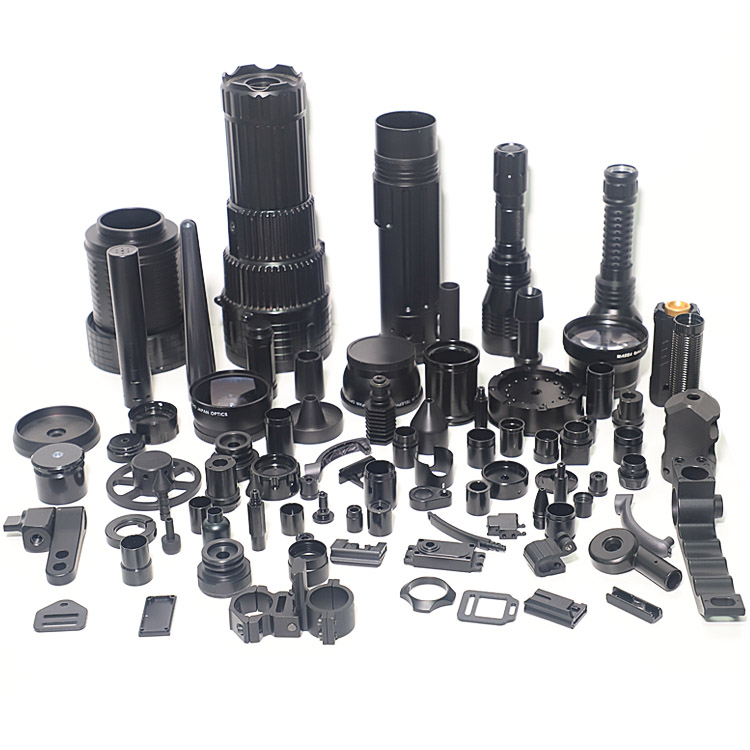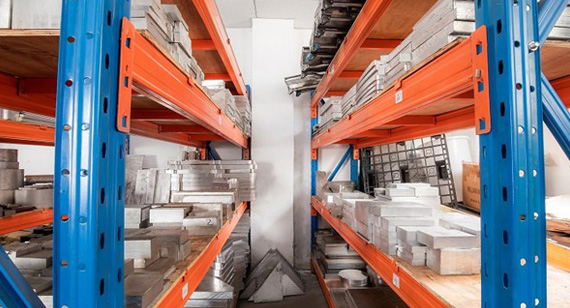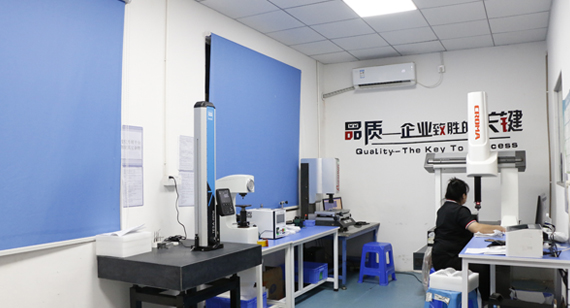15 years one-stop China custom CNC machining parts factory

Hey there I’m VMT Sam!
With 25 years of CNC machining experience we are committed to helping clients overcome 10000 complex part-processing challenges all to contribute to a better life through intelligent manufacturing. Contact us now
 118 |
Published by VMT at Jun 16 2024
118 |
Published by VMT at Jun 16 2024
Everything You Need to Know About Aluminum Machining Materials
Basic Knowledge of Aluminum
Aluminum, as the most abundant metal element in the Earth's crust, plays an indispensable role in modern industry due to its unique physical and chemical properties. With its silver-white appearance, lightweight, excellent conductivity and thermal conductivity, and outstanding corrosion resistance, aluminum is widely used in various industries. In the field of CNC machining parts manufacturing, aluminum materials are favored for their superior machinability and low cost.

Characteristics of Aluminum
Lightweight: Aluminum has a density of only 2.7g/cm³, about one-third that of steel, making aluminum products lighter in weight for the same volume, which helps reduce transportation costs and energy consumption.
Corrosion resistance: Aluminum can form a dense oxide film in humid air, which can prevent further corrosion of the metal, giving aluminum excellent corrosion resistance.
Excellent conductivity and thermal conductivity: Aluminum's conductivity is about 2/3 that of copper, and its thermal conductivity is about 50-60% of copper, making it an ideal material for manufacturing electrical equipment, heat sinks, etc.
Non-magnetic: Aluminum is non-magnetic, making it uniquely valuable in the electrical and electronics industries.
Machinability: Aluminum has excellent machinability and can be processed by various methods such as casting, forging, rolling, and extrusion to produce parts of various shapes and specifications.
Advantages and Disadvantages of Aluminum
Advantages:
Lightweight: Reduces transportation costs and energy consumption.
Corrosion resistance: Extends the service life of products.
Excellent conductivity and thermal conductivity: Suitable for electrical equipment and heat sinks.
Non-magnetic: Applicable to the electronics industry.
Machinability: Easy to process into various shapes and specifications of parts.
Disadvantages:
Relatively low strength: Compared with steel, aluminum has lower strength and may not be suitable for applications requiring large loads.
Poor high-temperature performance: The strength of aluminum decreases significantly at high temperatures.
Poor wear resistance: Aluminum's wear resistance is not as good as some other metals, such as steel and stainless steel.

Main Reasons for Using Aluminum
In the field of CNC machining parts manufacturing, the main reasons for using aluminum include:
Lightweight: Aluminum's lightweight properties make parts more convenient during transportation and installation.
Excellent machinability: Aluminum's machinability makes the manufacturing process more efficient and precise.
Cost-effectiveness: Compared to other metal materials, aluminum is more affordable, reducing production costs.
Most Common Aluminum Material Grades
In CNC machining, common aluminum material grades include:
1060 Aluminum Plate: High-purity aluminum plate with excellent corrosion resistance, conductivity, and thermal conductivity.
2 Series Aluminum Plate: Known as hard aluminum, with copper as the main alloying element, it has high strength and good machining performance.
3 Series Aluminum Plate: Main alloying element is manganese, with higher strength than industrial pure aluminum plate, good formability, weldability, and corrosion resistance.
5 Series Aluminum Plate: The most representative alloy of moderate strength, with good corrosion resistance, weldability, and formability.
6 Series Aluminum Plate: Such as 6061 and 6063, with good strength, weldability, machinability, and corrosion resistance, widely used in construction, aerospace, etc.

Which Aluminum is Best?
The question of "which aluminum is best" does not have a definitive answer because different aluminum materials have different characteristics and applications. When choosing aluminum materials, it is necessary to evaluate their performance according to specific usage requirements and processing requirements and select the most suitable materials.
What is the Best Aluminum Alloy?
Similarly, there is no fixed answer to "what is the best aluminum alloy." Different aluminum materials have different advantages in different application scenarios. For example, in situations requiring high strength and good machinability, the 2 Series aluminum plate may be the best choice, while the 5 Series aluminum plate may be more suitable for applications requiring good corrosion resistance and formability.
Common Applications of Aluminum
Aluminum has a wide range of applications, including but not limited to:
Aerospace: Aluminum materials are widely used in the aerospace field, such as aircraft skins, engine parts, etc.
Construction: Aluminum profiles and aluminum plates are used in the construction industry to make doors, windows, curtain walls, ceilings, etc.
Automotive manufacturing: Aluminum materials are used in automotive manufacturing to make vehicle bodies, engine parts, etc., to reduce vehicle weight and improve fuel efficiency.
Electrical industry: Aluminum's good conductivity makes it suitable for making wires, cables, and other electrical products.
Packaging: Aluminum foil is used to make various packaging materials, such as food packaging, pharmaceutical packaging, etc.
Which Industry Uses Aluminum the Most?
Among various industries, the construction industry may be one of the industries that use aluminum the most. Aluminum profiles and aluminum plates are widely used in the construction field for doors, windows, curtain walls, ceilings, etc. Additionally, the aerospace, automotive manufacturing, and electrical industries are also important application areas for aluminum materials.
Is Aluminum Magnetic?
Aluminum is non-magnetic and does not possess magnetic properties. This characteristic gives aluminum unique value in the electrical and electronics industries.
Is Aluminum Corrosive?
Aluminum itself is not easily corroded; on the contrary, it has excellent corrosion resistance. This is because when aluminum comes into contact withair, it rapidly forms a dense layer of aluminum oxide on the surface. This oxide layer effectively prevents further reaction between aluminum and oxygen or water vapor in the air, thus protecting the inner aluminum from corrosion. However, under certain specific environmental conditions, such as strong acids, strong bases, or high salinity environments, the corrosion resistance of aluminum may be challenged.
How to Check the Quality of Aluminum?
Checking the quality of aluminum materials is crucial to ensure stable performance and long service life of aluminum products. Here are some common methods for inspecting aluminum quality:
Visual inspection: Check whether the surface of the aluminum material is smooth, free from obvious cracks, bubbles, inclusions, or other defects.
Dimensional inspection: Use measuring tools to check whether the dimensions of the aluminum material meet the requirements, including length, width, thickness, etc.
Chemical composition analysis: Use chemical analysis methods to detect the content of various elements in the aluminum material to ensure compliance with specified standards.
Mechanical performance testing: Conduct tensile, compression, bending, and other mechanical performance tests on aluminum materials to evaluate their strength, toughness, and other performance indicators.
Corrosion performance testing: Conduct corrosion performance tests on aluminum materials under specific environmental conditions to evaluate their corrosion resistance.

Conclusion
Aluminum, as a lightweight, corrosion-resistant, and good conductor of heat and electricity metal material, has a wide range of applications in the field of CNC machining parts manufacturing. By understanding the basic knowledge, characteristics, advantages and disadvantages, and common material grades of aluminum, we can better select and use aluminum materials to meet various processing needs. At the same time, to ensure the quality of aluminum products, we also need to master some methods to inspect aluminum quality, thereby ensuring stable performance and long service life of aluminum products.
FAQ
What are the advantages of aluminum CNC machining parts?
Aluminum CNC machining parts have advantages such as lightweight, corrosion resistance, and good conductivity and thermal conductivity, making them widely used in multiple industries. Additionally, aluminum's excellent machinability allows for the production of various complex-shaped parts through high-precision machining methods such as CNC prototyping.
How to customize CNC machining aluminum parts?
Customizing CNC machining aluminum parts requires collaboration with CNC machining factories, providing detailed part drawings and machining requirements. CNC machining factories will carry out precise machining and manufacturing according to the drawings and requirements to meet the customer's needs.
Why choose CNC machining factories for aluminum machining?
CNC machining factories have advanced machining equipment and professional technical teams, ensuring the high precision and high quality of aluminum machining parts. Additionally, CNC machining factories can provide customized machining services according to customer requirements, offering personalized services.
What is the role of CNC prototyping in aluminum machining?
CNC prototyping is a high-precision, high-efficiency machining method that can quickly produce prototypes or samples of aluminum materials. This is crucial during the product design and development stage, helping customers quickly verify the feasibility and performance of products.
How to choose the right CNC machining service provider?
Choosing the right CNC machining service provider requires considering their machining capabilities, equipment level, technical strength, service quality, etc. Customers can evaluate their comprehensive strength and credibility by checking supplier qualifications, conducting on-site inspections, consulting other customers, etc.
Ready To Start Your Next Project?
Get Instant Quote

Request a Free Quote
Send us a message if you have any questions or request a quote. We will get back to you ASAP!